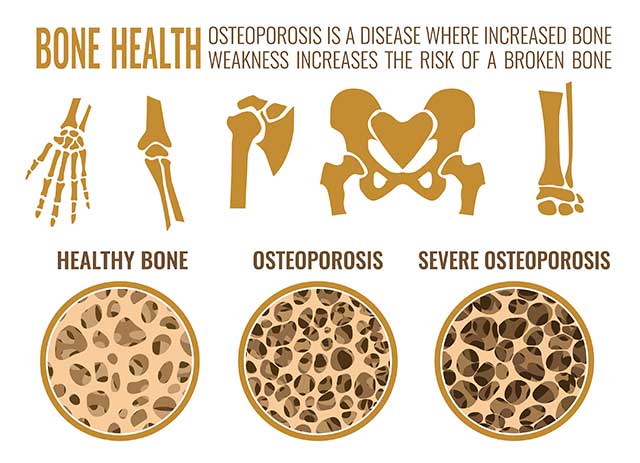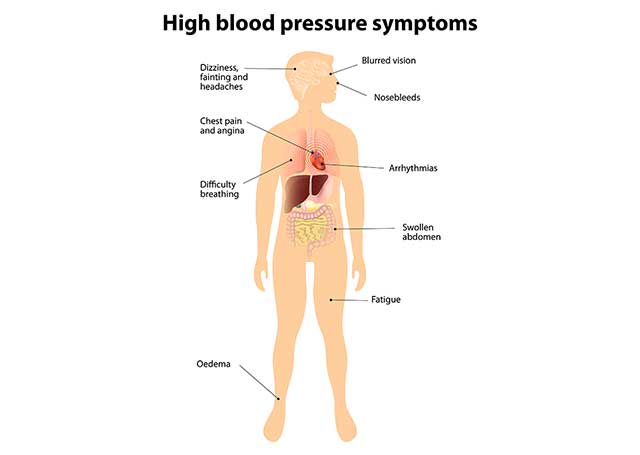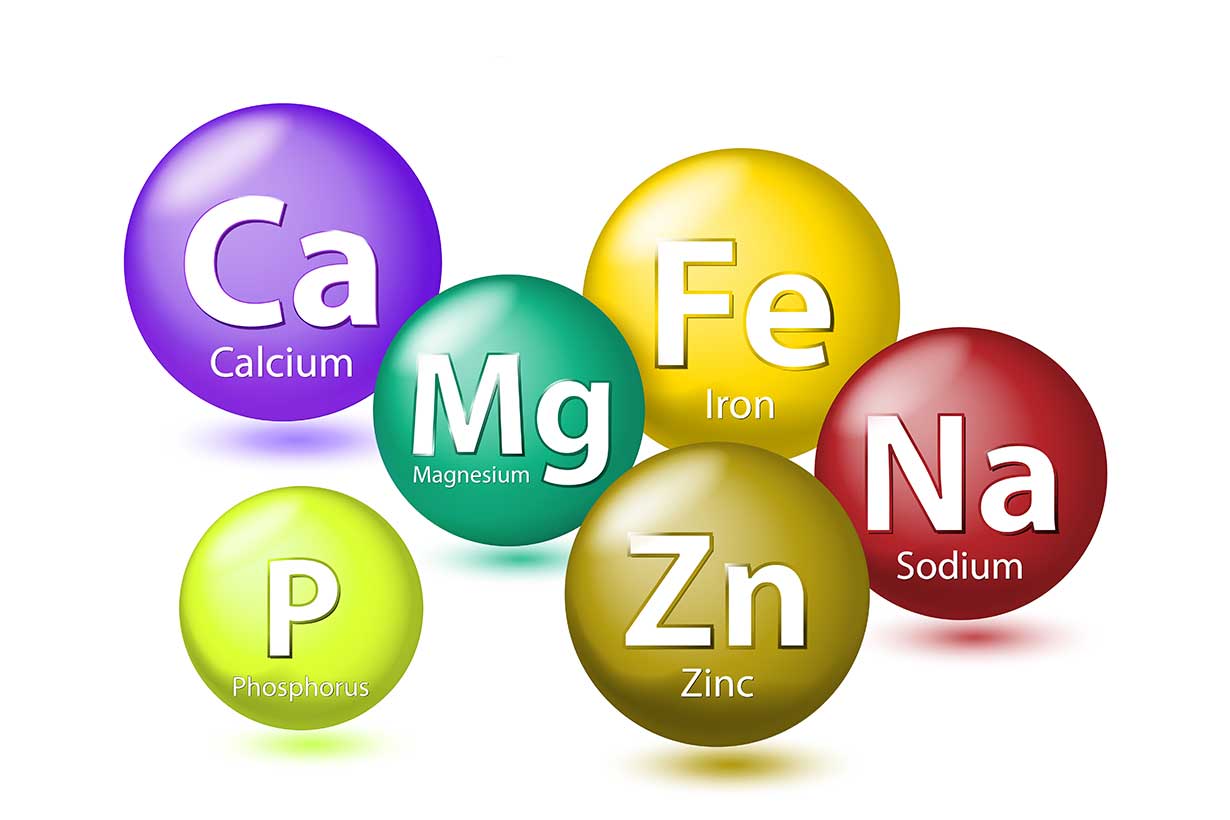Magnesium is an essential mineral with crucial functions, and maintaining a sufficient intake can have a range of benefits.
While many assume absolute magnesium deficiency to be a cause of health issues, outright deficiency is relatively uncommon. However, a persistent inadequate dietary intake of magnesium can lead to magnesium insufficiency or potentially deficiency (1).
This article examines some potential symptoms and effects that magnesium insufficiency and deficiency can contribute to.
Additionally, we examine which individuals are most at risk of low magnesium levels.
Important Note: The content in this article is for informational and educational purposes only. It should not replace medical advice from your healthcare provider.
Table of contents
What Is a Sufficient Magnesium Intake?

For adults over the age of 19, the current Recommended Dietary Allowance (RDA) for magnesium ranges from 310 mg to 420 mg, depending on age and sex (2).
The 2020-2025 Dietary Guidelines for Americans notes: “low intakes of nutrient-dense foods and beverages within the grains, dairy and alternatives, fruits, and vegetables food groups leads to low intakes of… magnesium” (3).
In this regard, it appears that dietary intakes of magnesium are not sufficient for a large proportion of the population. For example, data from NHANES 2013-2016 demonstrated that 48% of Americans don’t meet their Estimated Average Requirement (EAR) for magnesium (4).
Symptoms of Magnesium Deficiency
While there are many potential signs and effects of magnesium deficiency, this article will focus on those with scientific evidence behind them.
Each of these symptoms has evidence associating it with inadequate magnesium intake:
- Irregular nerve and muscle function
- Osteoporosis
- Poor sleep
- Hypertension
- Anxiety
- Muscular weakness
- Depression
- Headaches and migraines
We’ll now look at each of these potential issues, explaining how magnesium insufficiency may contribute to them.
1) Irregular Nerve and Muscle Function
Among its many functions, magnesium plays an important role in muscular contraction and nerve transmission (5, 6).
For this reason, low blood levels of magnesium may contribute to abnormal functioning of nerves and muscles, which may manifest as symptoms including muscle cramps, spasms, and general weakness (5).
Research shows that cramps tend to be more common in the extremities: hands, feet, and legs (6).
2) Osteoporosis

Magnesium is a key essential mineral for bone development and structure, making an adequate intake important for overall bone health (7).
As a result, a deficiency in the mineral can potentially lead to low bone mass or—in the worst-case scenario—osteoporosis (chronic bone loss). On this note, a 2024 review published in Frontiers in Endocrinology noted that magnesium is involved in osteoporosis as an insufficient intake can potentially have a negative effect on how parathyroid hormone is regulated (8).
This follows recent research showing that:
- Higher magnesium intakes may increase bone mass density in the neck and hip, according to a systematic review involving adults aged over 60 (9).
- Magnesium is protective against bone fractures, according to a large 2017 observational study involving 3765 participants. In the study, those with the highest intakes of magnesium had a significantly lower risk of fracture (10).
- However, a 2016 systematic review of studies examining magnesium intake and bone density found only marginal to non-significant associations (11).
3) Poor Sleep
As it can help muscles and the nervous system to relax, magnesium has been highlighted as a nutrient with a potential role in sleep quality.
Here’s a look at some recent research findings on whether better magnesium status can improve sleep quality:
- Based on findings from a 2024 systematic review of randomized controlled trials (RCTs), higher supplementary doses of magnesium tended to improve sleep quality at least modestly. However, the authors noted that larger, rigorous trials are necessary to provide recommendations on clinical practice magnesium use (12).
- A 2023 systematic review found that observational studies show a strong association between higher magnesium status and improvements in sleep quality metrics, which included daytime sleepiness and sleep duration. That said, findings from RCTs failed to find a significant link between magnesium supplementation and improvements to sleep disorders (13).
- A systematic review and meta-analysis published in 2021 found that data from RCTs suggest magnesium supplementation may help with insomnia, However, the review included only three relevant studies and the authors noted the evidence was “substandard” as an aid for physicians to make recommendations (14).
Based on these data, it is feasible that rectifying an insufficient magnesium status may help with improving sleep quality.
4) Hypertension

Hypertension, diagnosed as systolic blood pressure being over 130 mm Hg or diastolic blood pressure exceeding 80 mm Hg, is a common medical problem with several potential causes (15).
However, research suggests that an insufficient magnesium intake may increase the risk of developing hypertension. This is because magnesium helps to relax blood vessels, which improves blood flow, thereby reducing blood pressure (16).
- An umbrella meta-analysis of randomized controlled trials published in 2024 examined the effect of magnesium supplementation on blood pressure. Based on 10 RCTs involving 8610 participants, magnesium supplementation led to lower systolic and diastolic blood pressure over 12 weeks. The effects were strongest at supplementary doses of >400 mg per day for over 12 weeks (17).
- A 2017 systematic review and meta-analysis of 10 large observational trials involving over 180,566 participants looked at dietary magnesium intake, blood magnesium levels, and the risk of hypertension (18). The results found that the highest compared to lowest magnesium intake was associated with an 8% reduced risk of hypertension. However, there was only limited data on blood magnesium levels and blood pressure, and no significant association was found.
When looking at these studies, please remember that we can get more magnesium from dietary sources, and it doesn’t necessarily have to be from supplementation.
Learn more about dietary sources: 30 Foods High In Magnesium
5) Anxiety
Perhaps due to its role in regulating nerve transmission and the body’s stress response, research suggests low magnesium levels may contribute to increased anxiety symptoms (19).
There has been a wealth of research in recent years investigating the role of magnesium on anxiety:
- A 2024 systematic review identified seven studies that investigated the effect of magnesium on anxiety. Among these studies, five reported that magnesium intake led to improvements in self-reported anxiety. This was particularly true for individuals who had low magnesium status at the start of the study. While the results noted a positive association, the researchers concluded that larger randomized controlled trials (RCTs) are necessary to confirm this effect (20).
- In contrast, a 2023 systematic review and meta-analysis of RCTs found that magnesium had no significant impact on perinatal depression and anxiety. Perinatal anxiety refers to feelings of anxiety during—and up to one year after—pregnancy. The review identified three RCTs examining the efficacy of magnesium, and it wasn’t superior to control (21).
- An earlier 2020 systematic review evaluated four studies on magnesium’s impact on anxiety disorders. The review found mixed results, with two studies failing to find a link between magnesium blood levels and Generalized Anxiety Disorder (GAD). However, two studies demonstrated that depressed patients with high magnesium levels displayed a significantly lower severity of anxiety symptoms (22).
These studies show that magnesium may improve anxiety symptoms, particularly if rectifying a magnesium insufficiency—low blood levels of the mineral.
Although there were mixed findings, bear in mind that anxiety is not caused by a lack of one single nutrient—it is a complex condition with various potential contributory factors.
6) Muscular Weakness

Magnesium works in conjunction with calcium for muscle contraction, and a deficiency in one can impair how our muscles work (5).
For instance, magnesium helps to control the amount of calcium held in muscle cells. This calcium is held in the form of calcium ions, and magnesium helps regulate when they are released for muscle contraction (24).
Magnesium also interacts with the mineral potassium, and plays an important role in maintaining sufficient levels of it (25).
Although there is no exact one cause of muscular weakness, insufficient magnesium levels may contribute when we don’t have enough to properly regulate these processes (25, 26).
7) Depression
Studies suggest that low levels of magnesium could be a contributory factor in depression.
As with many conditions, depression can have many different causes. However, it is thought that insufficient magnesium may contribute due to its role in blocking NMDA receptors, synthesizing “feel good” chemicals in the brain such as serotonin, and its involvement in nerve transmission, GABA activation, and stress responses (19, 22, 27, 28, 29).
Notably, several recent studies have demonstrated that increasing magnesium levels through dietary intake and supplementation may help alleviate symptoms of depression:
- A 2025 systematic review and meta-analysis examined the link between dietary magnesium intake and depression. These studies included 63,214 participants across 13 different observational studies. Among its findings, the review found that participants with the highest magnesium intake had a 34% lower risk of depression than those with the lowest intake. Additionally, increasing dietary magnesium intake from 170 mg per day to 370 mg lowered the risk of depression (30).
- Randomized controlled trials (RCTs) also suggest benefit from increasing magnesium intake. A 2023 systematic review and meta-analysis examined seven RCTs on magnesium supplementation and depression. The analysis found that magnesium supplementation signicantly lowered depression scores. However, the researchers noted that the total participants included in the analysis was 325, and that larger studies are needed (31).
Although other factors are involved in depression, these results suggest that maintaining recommended magnesium intakes may help to lower the risk.
8) Headaches and Migraines
One of the most common symptoms of low magnesium levels is thought to be an increased risk—and likely severity—of headaches and migraines.
This is due to the various roles magnesium plays in the body, including nerve transmission, blocking NMDA receptors, muscle contraction and blood flow, and its regulation of neurotransmitters like serotonin (32, 33).
There is increasing scientific support for magnesium supplementation having benefits for migraines:
- A 2025 systematic review and meta-analysis of randomized controlled trials (RCTs) analyzed the effect of dietary supplements on migraine. The review found that magnesium supplementation significantly reduced the frequency and severity of migraines, as well as the monthly “migraine days” (34).
- A previous umbrella review of systematic reviews and meta-analyses—published in 2020—included 36 outcomes from RCTs and 10 outcomes from observational studies. The analysis found “strong evidence” for magnesium supplementation lowering both the severity and frequency of migraine (35).
- Furthermore, the American Migraine Foundation notes that magnesium supplementation is safe and “probably effective,” and that patients with frequent migraine may wish to discuss the option with their physician (36).
Based on the research, it is plausible that either increasing dietary intake of magnesium or supplementation may be effective for migraines, and that they could be a common symptom of low magnesium levels.
Individuals At Risk of Magnesium Deficiency

Anyone can suffer from a magnesium—or any other nutrient—deficiency if their dietary intake is not sufficient. However, there are certain groups of people who are more at risk for developing low magnesium levels.
These include but are not limited to the following groups.
People with alcohol use disorder
Individuals struggling with their alcohol use are more likely to have lower blood levels of magnesium.
A 2021 systematic review found that chronic alcohol use depletes levels of total and circulating magnesium (37).
Older Adults
Magnesium insufficiency becomes more common in older adults.
There are a range of potential reasons for this, including inadequate dietary intake, impaired—thus decreased—absorption, and impaired kidney function that affects how magnesium is stored (38).
Gastrointestinal Disorders
Gastrointestinal issues that impair the absorption of magnesium can lead to low magnesium levels.
For example, it is common for untreated patients with celiac disease to have poor magnesium status (39).
Similarly, Crohn’s disease may lead to magnesium deficiency due to poor intestinal absorption of magnesium (40, 41).
Type 2 Diabetes
Individuals with type 2 diabetes are at higher risk of magnesium deficiency, particularly in the context of uncontrolled diabetes.
This is due to urinary losses of magnesium, which may increase because persistent high blood sugar levels lead to increased urination frequency (42).
How To Ensure Sufficient Magnesium Intake
Firstly, there are lots of foods that supply significant amounts of magnesium.
These foods include whole grains, seeds (especially pumpkin seeds), cocoa, dark chocolate, nuts, some seafood options, and green leafy vegetables (43).
For a full review of 30 individual magnesium-rich foods, see this article.
You can also find a guide to the different types of magnesium supplements here.
Summary
As an essential mineral, magnesium is a crucial nutrient for overall health.
As this article shows, low levels of magnesium can potentially lead to several adverse symptoms of insufficiency.
It is important that anyone suspecting they may have insufficient magnesium levels doesn’t try to self-diagnose, which can be a common reaction to reading about deficiencies. In this regard, it is always best to seek advice from a trained physician or healthcare provider.
Lastly, it is worth remembering that, for most healthy individuals, magnesium supplementation isn’t necessary if dietary intake is high enough.
There are a wide range of magnesium-rich foods across multiple food groups.








